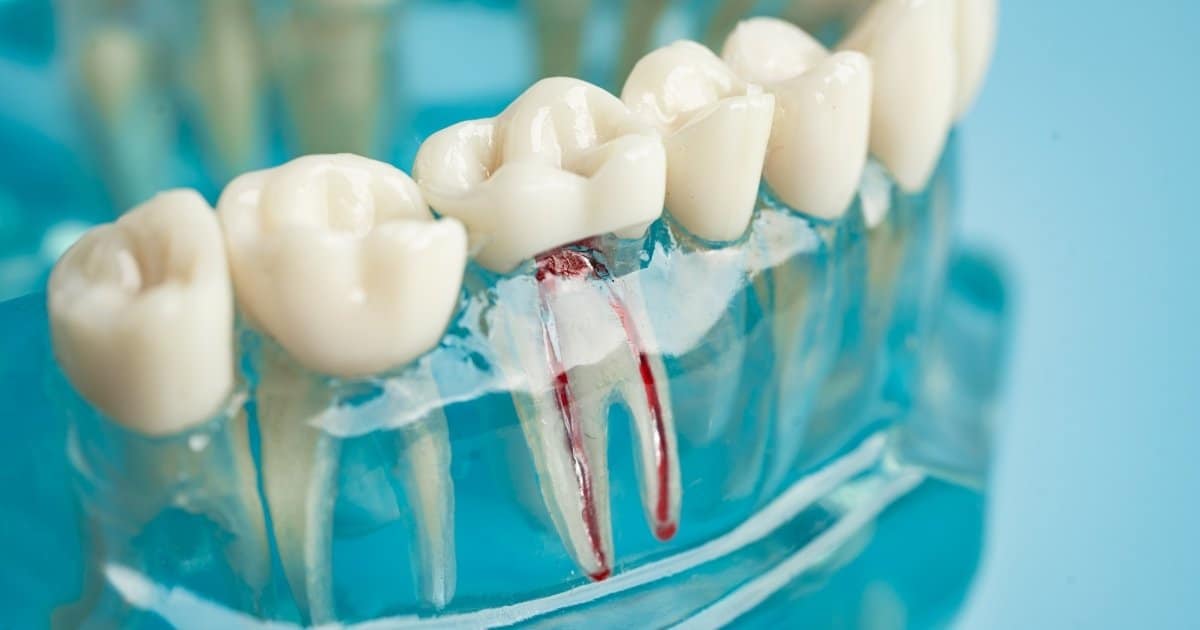Published on December 7, 2024

Diabetes affects many aspects of health, including oral health. People with diabetes often face a higher risk of dental issues, including infections and gum disease. When an infection reaches deep inside a tooth, a root canal may be necessary to save it. However, managing diabetes while undergoing a root canal requires special care.
This blog covers how diabetes affects dental health, why root canals are sometimes needed, and what precautions can help ensure a smooth procedure.
How Diabetes Affects Oral Health?
Diabetes impacts the body’s ability to fight infections, making dental issues more common. Here’s how it affects oral health:
- Higher Risk of Infections – Elevated blood sugar levels can weaken the immune system, making it easier for bacteria to thrive. This increases the risk of tooth and gum infections.
- Slower Healing – Wounds in the mouth, including those from dental procedures, may take longer to heal. This can increase the chances of complications.
- Dry Mouth – Diabetes can reduce saliva production, leading to dry mouth. This can cause irritation, cavities, and a higher risk of infections.
- Gum Disease – High sugar levels in the blood can lead to inflammation in the gums, increasing the risk of periodontal disease.
When Do You Need a Root Canal?
A root canal in Chester is necessary when the pulp inside a tooth becomes infected or inflamed. This can happen due to:
- Severe Cavities – Untreated tooth decay can reach the pulp, leading to infection.
- Gum Disease – If bacteria spread from the gums to the roots, the tooth may need a root canal.
- Cracked or Injured Teeth – A deep crack or trauma can expose the pulp, allowing bacteria to enter.
If left untreated, an infected tooth can lead to severe pain, swelling, and even tooth loss. For people with diabetes, the risk of complications from an untreated infection is even higher.
Can Diabetes Affect Root Canal Treatment?
Yes, diabetes can influence how the body responds to a root canal. Here’s what to consider:
- Higher Infection Risk – Since diabetes weakens the immune system, the body may struggle to fight off infections after the procedure.
- Delayed Healing – Recovery may take longer, so extra care is needed to avoid complications.
- Blood Sugar Fluctuations – Stress and infection can cause blood sugar levels to rise or fall unpredictably. This can affect healing and overall well-being.
- Increased Gum Sensitivity – People with diabetes often have inflamed or sensitive gums, which can make recovery more uncomfortable.
Proper management before and after the procedure can help reduce risks and support healing.
Precautions to Take Before a Root Canal
Taking extra steps can help ensure a smooth procedure and recovery:
- Monitor Blood Sugar Levels – Keeping blood sugar within a healthy range can improve healing and reduce complications.
- Inform Your Dentist – Always let your dentist know about your condition and any medications you are taking.
- Take Prescribed Medications – If your dentist prescribes antibiotics, take them as directed to prevent infection.
- Eat a Balanced Meal – Having a nutritious meal before the procedure can help maintain stable blood sugar levels.
- Schedule Wisely – Morning appointments may be better since blood sugar levels tend to be more stable earlier in the day.
Post-Treatment Care for People with Diabetes
Healing after a root canal requires extra care for people with diabetes. Follow these steps to support recovery:
- Maintain Good Oral Hygiene – Brush and floss gently to keep the area clean and prevent infection.
- Avoid Sugary Foods – Limit sugar intake to prevent further dental issues and blood sugar spikes.
- Take Medications as Directed – If your dentist prescribes pain relievers or antibiotics, take them as instructed.
- Stay Hydrated – Drink plenty of water to prevent dry mouth and support healing.
- Watch for Signs of Infection – Redness, swelling, or increased pain could indicate an infection. Contact your dentist if you notice any of these symptoms.
Long-Term Oral Health Tips for People with Diabetes
Keeping your teeth and gums healthy can help prevent the need for future root canals. Here’s how:
- Control Blood Sugar Levels – Consistently managing blood sugar can lower the risk of infections and gum disease.
- Visit the Dentist Regularly – Routine check-ups can help catch problems early and prevent serious dental issues.
- Use a Fluoride Toothpaste – Fluoride strengthens enamel and helps prevent cavities.
- Quit Smoking – Smoking can make gum disease worse and slow healing. If you smoke, consider quitting for better oral health.
Diabetes and root canals are closely connected, as high blood sugar can increase the risk of dental infections and slow recovery. Taking preventive measures, maintaining oral hygiene, and managing diabetes effectively can help reduce complications. If a root canal is necessary, proper care before and after the procedure can ensure a smooth recovery.
By staying proactive about both oral and overall health, people with diabetes can protect their smiles and avoid future dental problems. If you have any concerns, consult your dentist for personalized advice.
